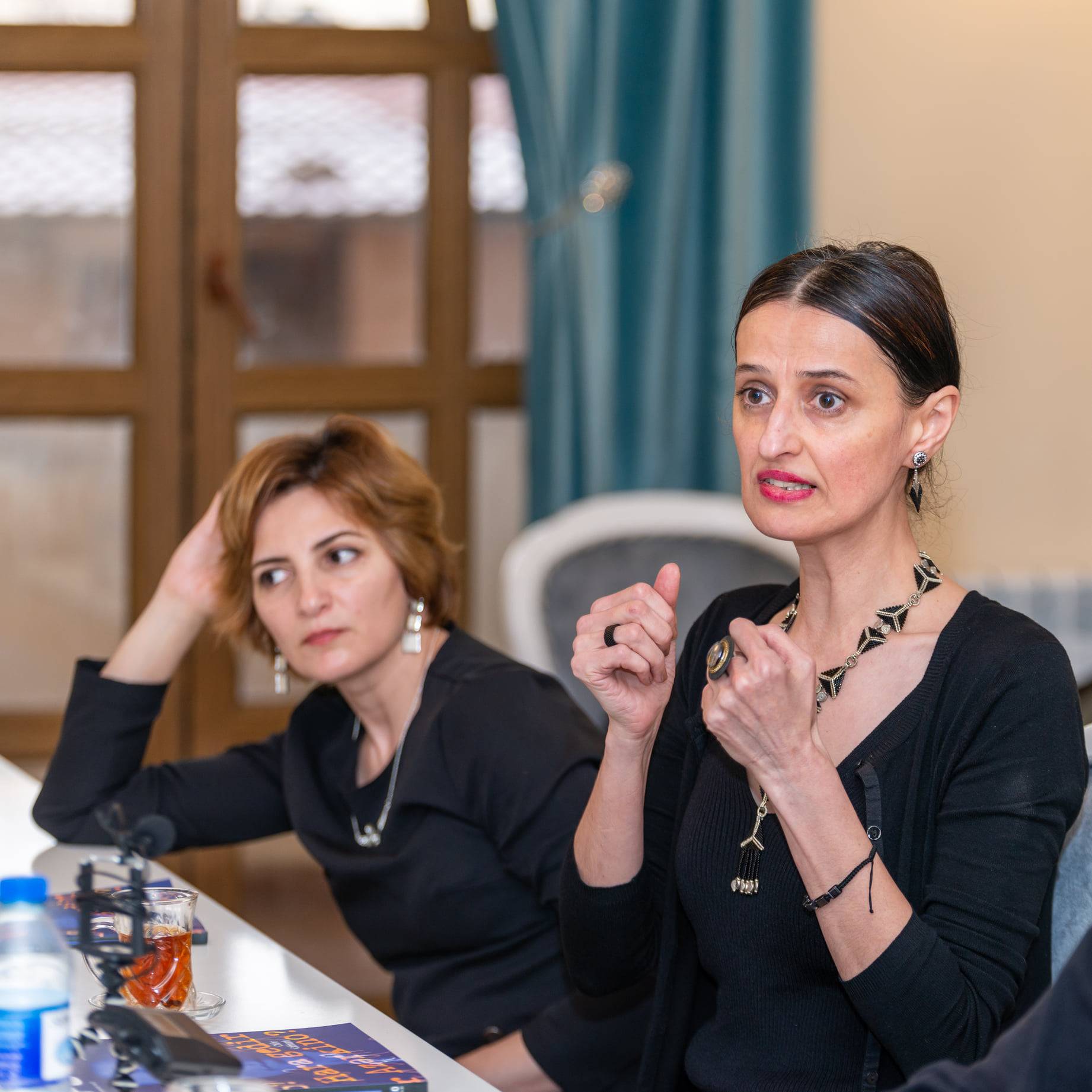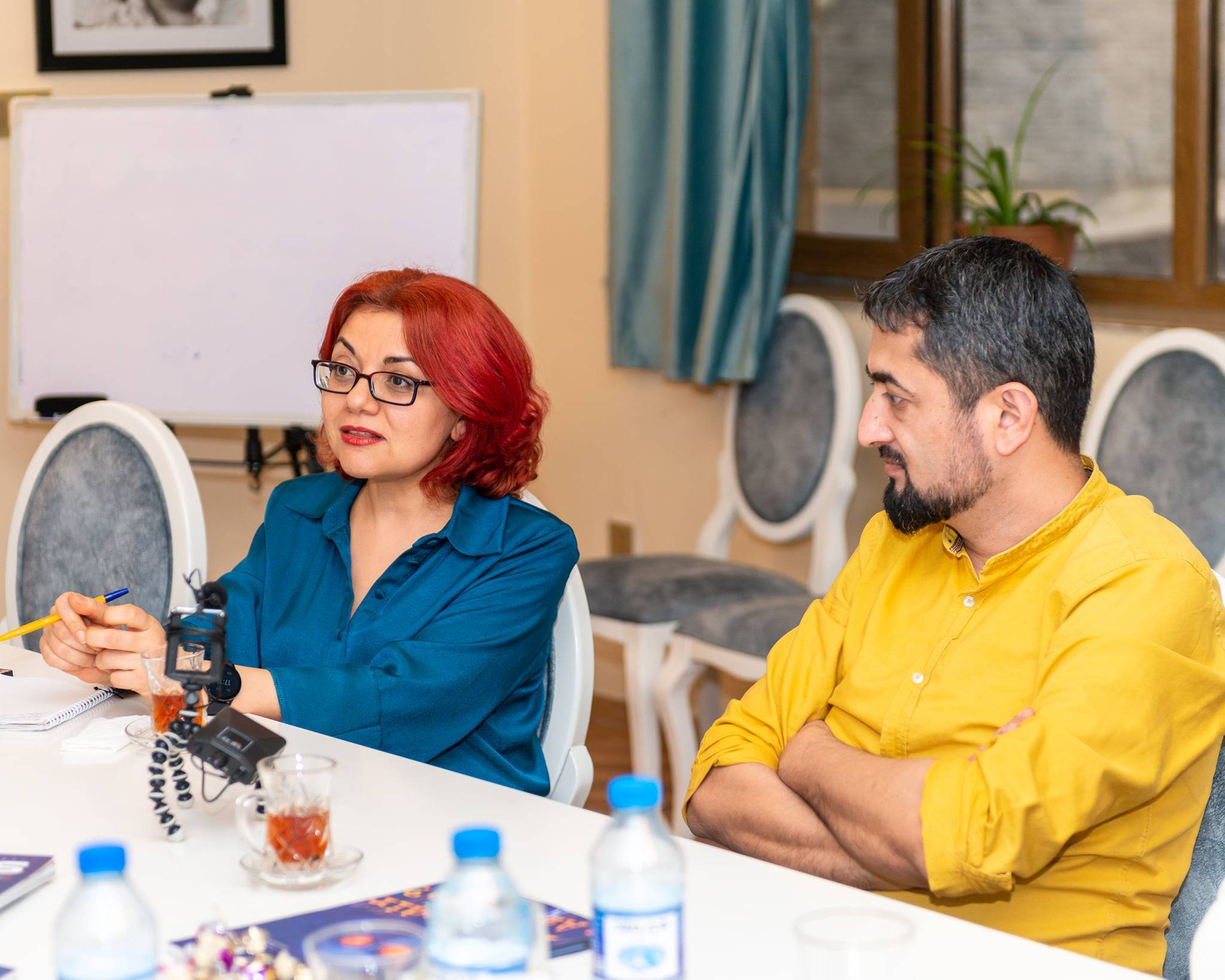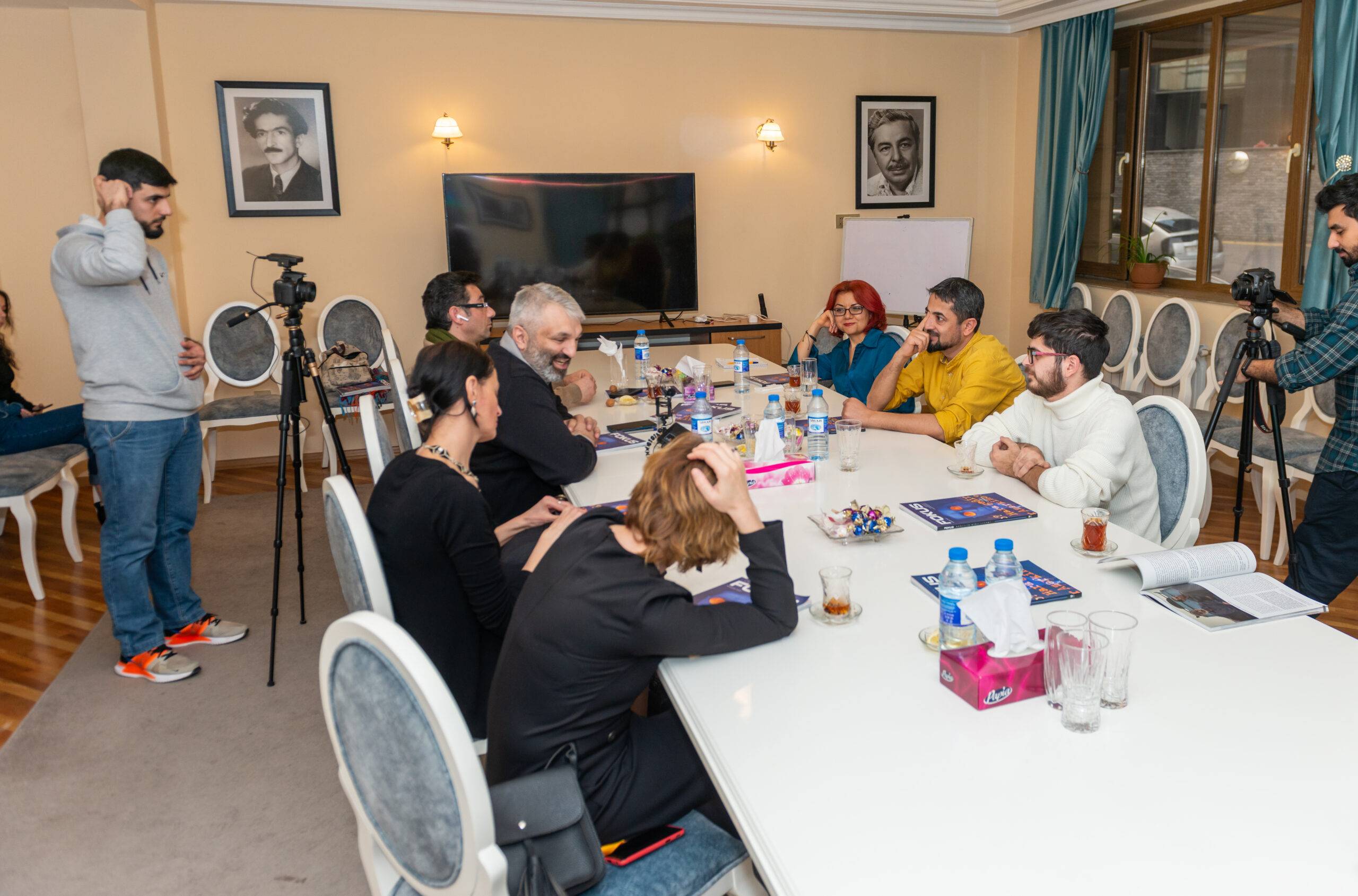Where is Azerbaijani cinema going?
A discussion on the subject of “Where is Azerbaijani cinema going?” was held on the occasion of the new, 10th edition of “Focus” magazine published after 9 years break in AUF on February 18. Ali Isa Jabbarov, Secretary of the Union, one of the founders and editor of Focus, who moderated the discussion, said that the main supporter of the current and the next three ones is the Ministry of Culture. “It seems from reactions that after a nine-year hiatus, people were really waiting for the magazine to be published,” he said. The main article and a concept for its design is a real Azerbaijani genius Jafar Jabbarli’s “Where is Azerkino going?” article. As painful as it is, Jabbarli’s article has not lost its topicality so far. Today, together with the film studies professionals here, we want to ask, “Where is Azerkino going?” Let’s answer the question again. Let’s see where Azerbaijani cinema is going and where it should go. ”
Director of Baku International Short Film Festival Fehruz Shamiyev said that the new production conditions that emerged after the transfer of the film department to the Ministry of Culture during independence also affected the aesthetics of cinema: “As the management system of the cinema changed, it began to directly affect the production itself. This production led to the fact that the number of author’s films began to decline in Azerbaijan. If we look at the years before 2002, we see that certain projects, either individually or by the expenses of the state had director remark distinctively. But in the following years, a production process began in Azerbaijan, as if to complete the plan. We are still suffering this. There have been some attempts in the last five years to break these shackles, but I still do not consider these attempts successful. ”
The establishing of the Film Agency that is intended was also discussed on meeting.Director Fehruz Shamiyev said he fully supports the idea of establishing a film agency. However, film critic Aygun Aslanli said that, unlike the director, she is not optimistic about the activities of the agency: It will simply be the modification of the same concept. If the system does not change, it means that the funds allocated from the state budget for cinema are transferred today to the Cinema Department of the ministry, and tomorrow to the agency. So what’s the difference? ”
Director F.Shamiyev intervened here: “The difference is that the Cinema Department must get permission from 5 other departments of the ministry to approve the money.”
In response, Aygun Aslanli said that she does not mean a permit: “What I mean is that if there are no conditions for independent filmmakers to make comfortable films, no practical law on cinema and taxes are not regulated, the money is still spent elsewhere , what’s the difference then? ”
Film critic Sevda Sultanova said that the establishment of the Film Agency may considered a positive development: “Because, at least in part, bureaucratic obstacles will be removed. But at the same time, the film community must demand transparent mechanism. Let the group of experts change every time. The system in Georgia and Kazakhstan is a good example. Also, if the competition is held 3-4 times a year and the conditions are simplified, I am sure that the scenario problem will be significantly solved. Insecurity in this issue will also be eliminated. For example, I have come across many times that people say, “They’re going to choose their acquaintances anyway.” The Cinema Department must gain trust on that. ”
According to film critic Haji Safarov, it is incorrect to consider a typical example of the level of Azerbaijani cinema on the achievements of directors Hilal Baydarov and Elvin Adigozel in independent cinema. Because we should not only take attention to the highest results. The average of Azerbaijani cinema is under it. This is their own success, we cannot deny it. But this is not a summary of the general situation. Of course, if the state has a budget formed at the expense of citizens’ taxes, it must be properly regulated. In fact, the Ministry of Culture should have a scheme where there should not be any exceptions. The two directors I have mentioned are exceptions. This should become the norm. There must be such a working wheel that every time a new author comes out of that wheel and we must recognize him. ”
At this point, Sevda Sultanova spoke about the importance of making quality films as a norm: “The ministry should hold the competition not once, at least but twice. Then we will know that yes, out of 3-5 participants, there are 2 talented and promising candidates. For example, you talked about discussions. Nizami Cinema Center is on the balance of the state. At least let them take the initiative, for example, they have small halls. They can have regular film screenings and discussions there. Another question is that who should train film critics? Unfortunately, Azerbaijan State University of Culture and Arts is not a center of power in this sphere. We searched for new signatures for “Focus”, but could not find them. All submitted articles were incapable. I think all these problems are interconnected. ”
In conclusion, Ali Isa Jabbarov said that the final conclusion of him from the discussion is as follows: “There is a need for film critics, film theorists and strong screenwriters. That is, we can say that there are 3-5 film professionals, screenwriters, film playwrights and they have some scripts, we have read them and no doubt for their quality and it is needed to shoot them. ”
Izolda Aghayeva






